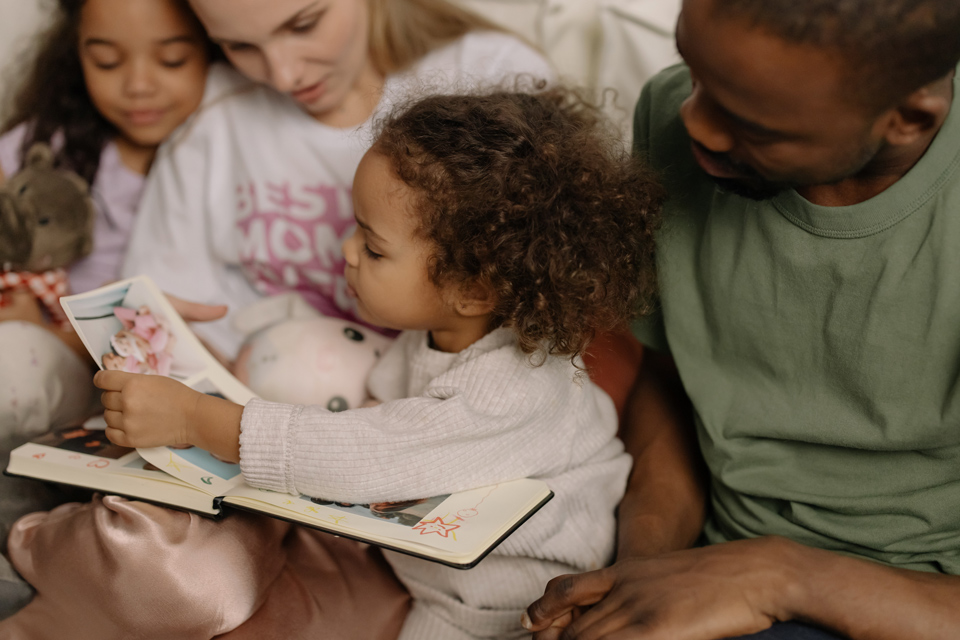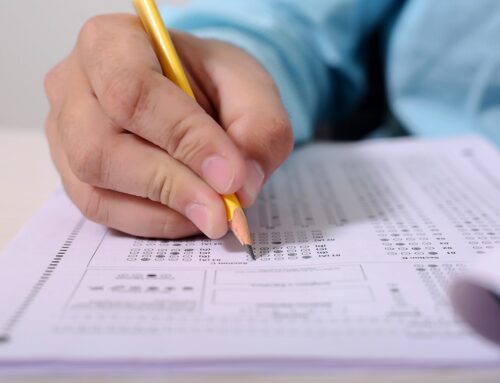Intellectual ability refers to a child’s development of thinking skills, which includes their inclination to explore and learn about the world, thus acquiring new knowledge and skills to be able to problem solve in the real world.
As a parent, you can support your child’s development of cognitive skills by providing opportunities for them to meet and regularly practise these skills, mostly through play and participating in everyday tasks.
One important part of cognitive development is learning new skills in a social manner. This means that you need to model learning skills to your child as much as interact with them, talking and playing together, taking turns and building from each other’s contributions.
It is all too easy to be distracted by daily life; however, to help support your child they will need your total attention. Reserve as much time as possible to offer them daily or at least weekly focused one-to-one interaction. For bigger families, one-to-one time may be scarce, you may need the support of extended families or take turns, but these skills can be practised and learned as a family too.
Go out and about. Physical stimulation is important for brain development. Provide space and opportunities for you and your child to walk, run, climb, hang, skip, cycle, etc. At home, play music and dance to it, and later on consider clubs and extracurricular classes.
Visit exhibitions and museums to introduce new themes (art, trains, animal kingdom, science etc.) and explore topics and places they already love further. Art exhibitions can help your child to understand that people can be good at different things but not at everything (styles of painting, photography, jewellery, drawing, sculpting, embroidery etc.) – and offer a good way to help you discuss subjectivity, ability and prevent perfectionism.
Regularly try different arts and crafts for developing all kinds of skills, such pattern making, fine motor skills, attention and resilience, and expression of emotions and feelings.
Acquisition of vocabulary is an important part of academic success. Read to your child at home (books, magazines, funny poetry, comics, etc.) and take advantage of audiobooks and podcasts when travelling by car or train. The more words and rich language children are exposed to, the more they will use later on.
Use categorising words (shapes, texture, etc.) and labelling words (blocks, books, etc.) to sort and match toys, jigsaw puzzle pieces and other belongings. This is quite useful when tidying up. For older children, discuss patterns in music, buildings, roads or nature (from daily routines, to the seasons and life cycles to the Fibonacci series).
Encourage curiosity. When they ask you a question about how the world or nature works, sometimes tell them that you don’t know and then look it up together. You can ask yourselves what you think the answer may be and then compare it with what you have found. Prediction making is an important part of learning.
Play board games to teach turn taking, planning, concentration and memory. There are a whole range of games that are a fun way to help your child’s development, from the early years to adulthood!
Use coins and notes to save and spend at the shops. Counting and using money are easily practised in the real world when going to the shops for bread or juice for example. Older children could be taught about budgeting and the value of money by having an allowance to save for special things.
Engage in pretend play about books or films your child likes. Trying to represent a character’s personality is a great exercise in theory of mind (understanding putting yourself in someone else’s shoes). You can use all kinds of props but making your own can add creativity to the learning experience.
While play is a vital part of learning for children of all ages, some age-appropriate chores are also highly recommended. When they are age appropriate, they help children learn about responsibility and self-esteem. Children may not do them as well as an adult at first, but they will eventually improve with positive feedback and practise and are an excellent way to help promote and develop executive function skills.
As your child grows, help them to stay open to sharing ideas and thoughts with you by encouraging them to discuss topics, issues and current affairs. Listen to and respect their points of view. Help them to think independently and develop their own ideas, praising them for decisions that they make which show maturity, while helping them to evaluate and re-evaluate decisions they make which may be poorly considered.
Failure is an important part of child development. As much as we want to stop our child from making mistakes and failing, it is important not to rush in and fix everything in your child’s life. While there are times you must intervene, letting your child cope with the natural consequences of setbacks builds emotional regulation. Show respect for your child’s judgement and allow them the opportunity to fail, then be supportive without being judgemental.
Resources
The following articles from Potential Plus UK may help you further in supporting your child’s development.
- Creativity of Thought
- Creative Thinking Skills: Activities for Arts and Sciences
- Curiouser and Curiouser – Activities to Encourage Curiosity
- Developing Thinking Skills Through Board Games
- Executive Function Skills – Simplifying a Young High Potential Learner’s ‘Thinking’ and ‘Doing’
- Grow Their Giftedness: Tips and Activities for Children with High Learning Potential
- Introducing Drama to Your Child
- The Power of Music: Its Impact on the Intellectual Development of Children
- Thumbs Up to Failure
- Using Visual Arts to Foster Creative Thinking Skills
- When Struggling is a Good Thing
About the author: Andrea Anguera is Potential Plus UK’s Assessment Services Manager and holds an MSc in the Psychology of Education and Child Development. She is the mother of two children with exceptionally high learning potential.







